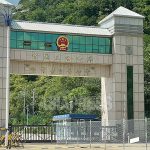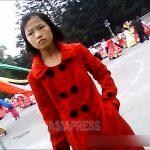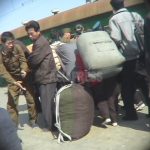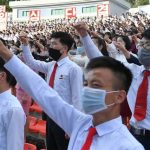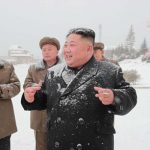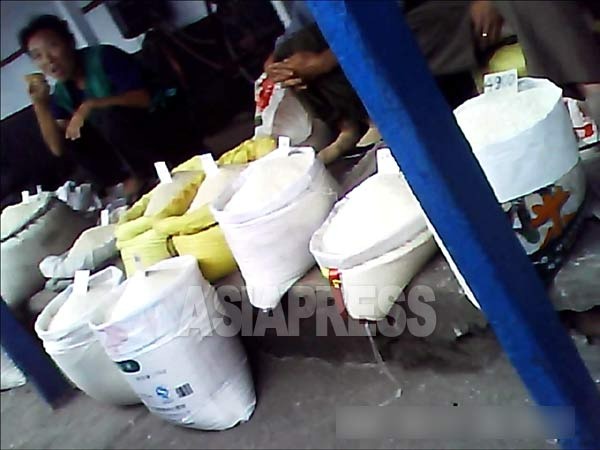
◆ A ban on rice and corn in some markets in the country
Public markets in North Korea’s northern cities banned the sale of rice and corn in January. This news has been confirmed by several ASIAPRESS reporting partners in North Hamgyung Province, Yanggang Province, and North Pyongan Province. The measure has made it so the only remaining place for people to purchase food is state-run food shops, but these shops have very limited stocks of food, which is causing discontent among consumers. (KANG Ji-won / ISHIMARU Jiro)
ASIAPRESS has confirmed that four cities in the northern region of the country has slapped bans on the sale of rice and corn. ASIAPRESS was unable to confirm similar bans in Pyongyang and other cities, but it does appear the ban is nationwide.
A reporting partner in Yanggang Province told ASIAPRESS that “last year market sellers were told by market management offices that there would be a complete ban on food sales starting in 2023, and this ban was implemented at the start of this year. The ban affects just rice and corn, but allows the sale of potatoes, beans and other non-grain foods.”
An ASIAPRESS reporting partner in North Hamgyung Province confirmed the Yanggang Province reporting partner’s report.
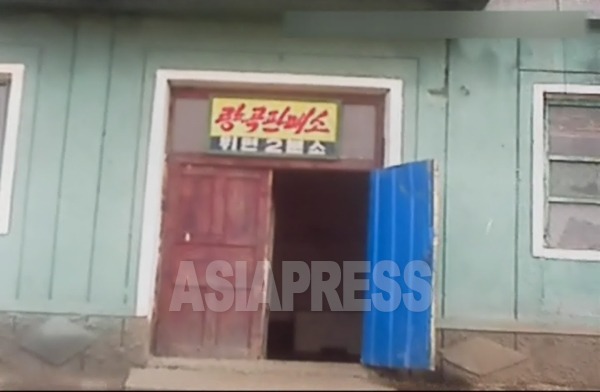
◆ Why the regime has banned food sales in markets
North Korean authorities began to intensify their controls over the sale of food in markets around the time the COVID-19 pandemic began in January 2020. The Kim Jong-un regime stopped almost all trade with China as part of efforts to prevent the spread of the virus across the border and placed strict bans on the movement of people and goods within the country.
As a result of these measures, the country began experiencing an acute shortage of basic commodities, leading to severe fluctuations in food prices. The authorities intervened in food transactions at markets, putting in place price ceilings for food items. In addition to enforcing these price ceilings, the authorities strengthened their monitoring of people hoarding food. All of these measures were an attempt by the authorities to stabilize food prices by force.
Meanwhile, the Kim Jong-un regime attempted an expansion of its state-run food shop network. Starting in 2019, the government had already started selling rice and corn at irregular intervals through these shops at prices slightly lower than what could be found in markets. Following the start of the COVID-19 pandemic, the regime expanded the state-run food shops nationwide.
A comprehensive look at the reports from reporting partners in North Korea suggests that, starting in 2021, the regime shifted from selling food items when stocks were available to selling five kilograms per person in each household once per month.
The market prices of white rice and corn in December 2022 were KPW 6,000 and KPW 3,000, respectively; however, state-run food shops sold these commodities at just KPW 4,400 and KPW 2,400 (prices are for one kilogram. KRW 1,000 equals around KPW 6,400). The shops also allow consumers to buy food using Chinese yuan and US dollars.
Laborers have been able to buy several kilograms of food at the state-run shops while also receiving rations from the state, although workers who miss work several times or don’t show up altogether are not allowed these benefits. Some people believe that the government is restarting the food distribution system of the past, but the food distributions are not uniform or stable: there are times when workers are not even able to receive one gram of food over several months, and the amount of food workers receive depends on where they work.
The Kim Jong-un regime has thus intensified efforts to suppress market activity while increasing importance of state-run food shops. The regime appears intent in implementing a state-led monopoly over the country’s food supply.
◆ The first time in 20 years that selling food has been banned in markets
Following the fall harvest last year, the regime heavily intensified its restrictions on the distribution of food in markets. In particular, the government has strongly cracked down on market sellers purchasing food produced in rural farming areas. Trading companies are not allowed to sell food they have in stock to market sellers, either.
Market management offices demanded that market sellers submit documents confirming the sources of the grains they sell, and also placed limits on how much they can sell. The markets did not ban sellers from putting rice and corn products on display; however, many market sellers gave up selling those items when they found they could no longer make money.
Then, starting in early January, the regime moved to completely ban the sale of certain foods in markets. This is the first time that has happened since the government legalized blacked markets (jangmadang) in 2003.
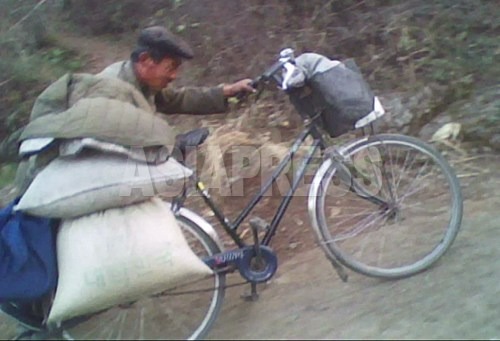
◆ The negative affects of the ban on selling food in markets
Below is an interview with two ASIAPRESS reporting partners in Yanggang Province.
―― If sellers aren’t allowed to sell food in the markets, how do people buy food? Rations provided through workplaces and food sold through state-run food shops will not be nearly enough…
Rice sellers continue to sell their goods at their homes. In the fall of last year, the crackdowns got so intense that officials even went into people’s homes (to check to anyone selling rice). There has been a rise in discontent among consumers because there’s no place to buy food, so the authorities are now turning a blind eye to people selling from their homes. They do not allow sellers to put out their food items for display.
―― Why are the authorities allowing people to sell goods from their homes?
The state has now banned even the sale of food in markets despite not being able to provide the people with proper supplies of food, so how are households with just elderly people or those working in jobs requiring only light labor and their family members supposed to get food? The issue blew up all at once. There are even people who are starving because they can’t buy food, so the authorities have eased their crackdowns on people selling food from their homes. (An ASIAPRESS reporting partner in North Hamgyung Province also provided the same information.)
―― What kind of impact is this having on poverty-stricken people?
(At the markets) it was possible to buy things from sellers you know on credit even if you didn’t have money, which allowed many people to find ways to survive. The state-run food shops don’t allow buying things on credit, nor do they haggle. There were a lot of people who made a living by buying rice and corn on credit from markets to make food they could sell (such as rice cakes), but now they can’t do that anymore.
―― We’ve heard reports of people dying of starvation…
People don’t have cash incomes. Nor can they buy food on credit. So there’s even people who head to farm areas to beg for food. There’s quite a few people around me who are surviving on just one or two meals a day. They are physically weakening to the point that (some) are dying. But the authorities never say that they died of starvation, just that they died of disease.
◆ What is the government saying about the ban?
―― How is the government explaining the ban on food sales in markets?
It is explaining that the ban is aimed at preventing people from conducting transactions with illegally obtained, state-owned food and selling this food in markets at marked up rates. The ban is also aimed at preventing wealthy people from reselling food they bought at markets for high prices. The authorities are also saying that the ban is aimed at stopping people from selling food in the markets to cover the costs of purchasing materials for enterprises and farms.
――What is the Kim Jong-un regime’s intention to implement the ban?
Right now, people are leading tough lives because the business environment is so poor. Many people are reliant on the food sold at state-run food stores, along with rations provided by their workplaces. There’s been a rise in the number of people who want to join a workplace that hands out rations. The government knows this and that’s why it is restricting sales of food at markets. There has also been rumors of a large amount of food coming in from China in late March, which has raised the hopes of many people.
The Kim Jong-un regime is trying to implement a state-run monopoly over food distribution at the expense of the markets. It is unclear whether these efforts will be successful, but it is clear the regime is in the midst of an effort to exert more control over its people by taking hold of their food supply.
※ ASIAPRESS communicates with its reporting partners through Chinese cell phones smuggled into North Korea.
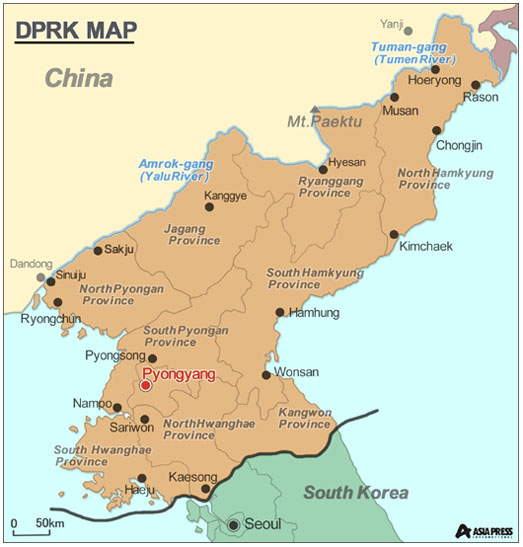
- <Inside N. Korea>Food sales banned in markets, leading to anxiety and concern while deepening the poverty suffered by the poor
- <Inside N. Korea>Poverty-stricken urban dwellers raid farming villages in search of food…the police are on emergency alert to deal with the rise in robberies
- <Inside N. Korea>Gasoline and diesel prices in North Korea have increased by at least two-fold in the past year. Why are prices increasing in North Korea when they are falling in other countries?
- How should we view Kim Jong-un’s daughter? The regime is looking to perpetuate the country’s one-family rule into a fourth succession ISHIMARU Jiro
- <Inside N. Korea> Poverty-stricken people gather in front of government and party headquarters in Yanggang Province to demand food
